The dishwasher was a gift from the invention Gods (Josephine Cochrane and George Butters, who invented it in 1887, to be precise), but if they saw the common dishwasher mistakes people often make (like letting the door fall open to the floor), their jaws would hit the floor and deem us unworthy of their life-changing invention! Read on for the most common dishwashing mistakes people make, and how you can avoid them, to extend the life of your dishwasher!
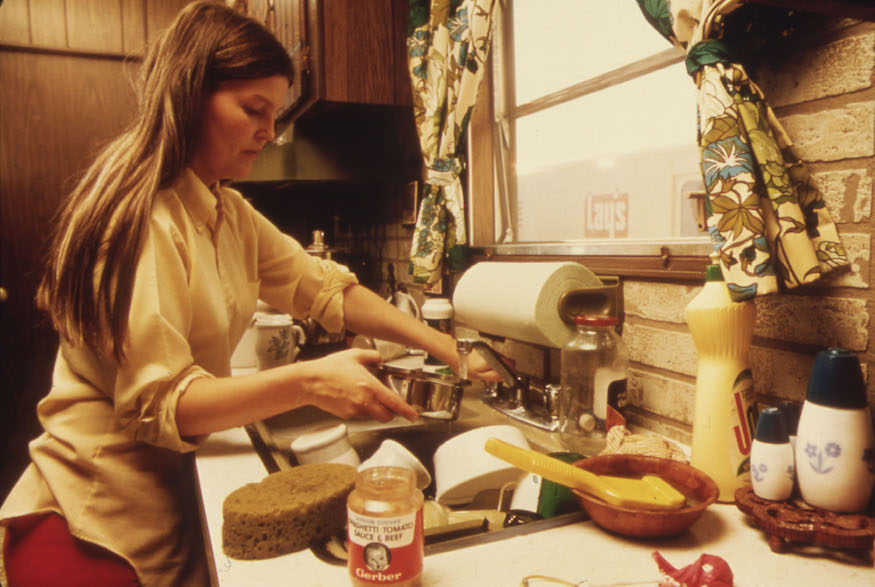
Washing by Hand
If you’re going old school and washing dishes by hand, be aware that the water temperature is probably not hot enough to fully sanitize dishes (dishwashers are typically optimized for water to be between 120 and 140 degrees Fahrenheit). And if you think you’re saving water by hand-washing, think again; a dishwasher actually uses less water than hand-washing, so if your kitchen has a dishwasher there’s no reason why you shouldn’t be using it.
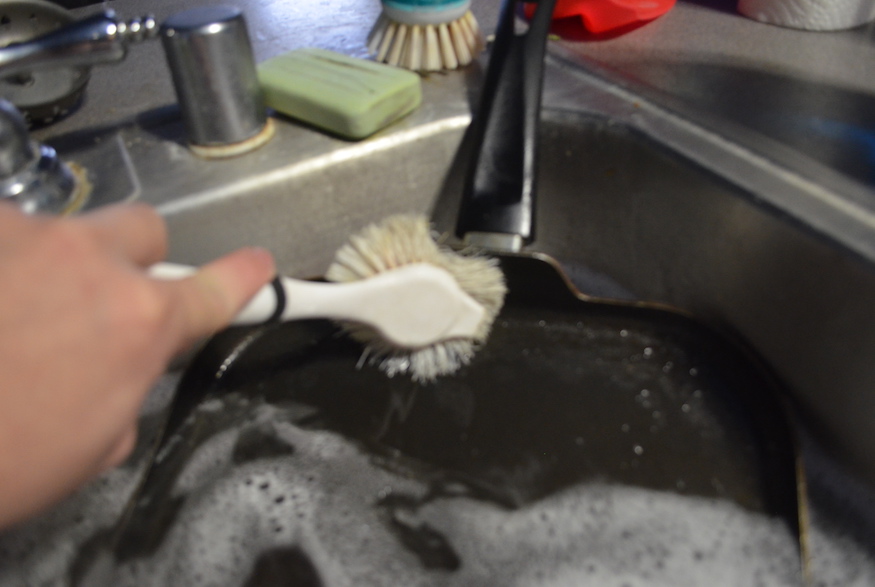
Too Much Scrubbing
While it’s a good idea to do a little pre-washing on especially gunky dishes, it’s actually not a good thing to scrub them until they’re sparkling clean. Dishwashing detergent needs something to attack, and if there’s no gunk whatsoever, the enzymes in the soap will simply whirl around the dishwasher without doing really cleaning anything. In fact, if this happens on an ongoing basis, you could actually be doing damage to your dishes.
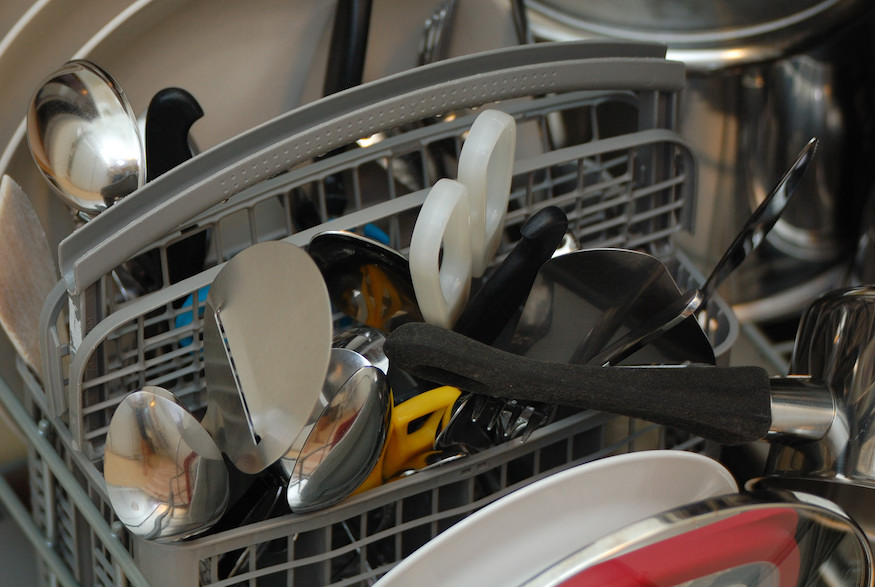
Overloading
You may think you’re being efficient by filling every available space when loading the dishwasher, but packing everything together that tightly will probably result in a load of dishes that doesn’t get completely clean, and will require you to rewash them a second time.
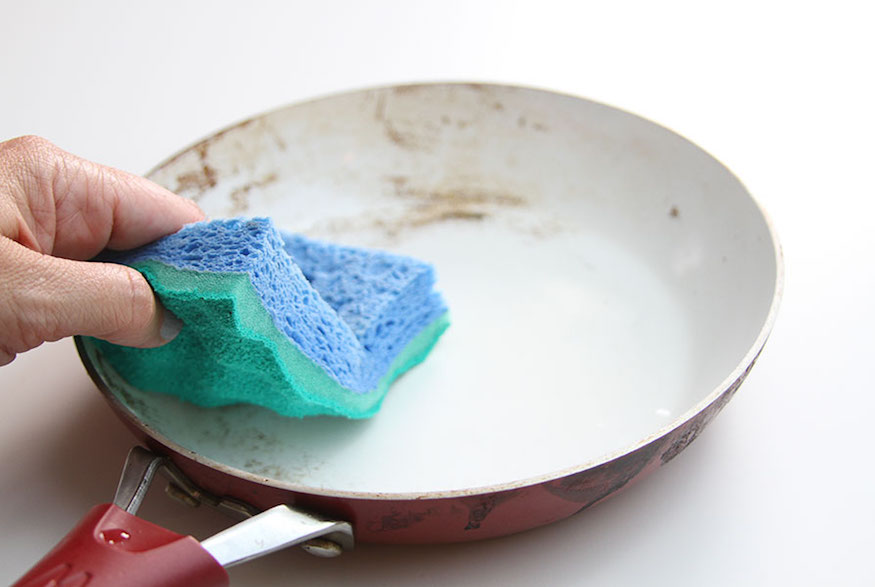
Don’t Put Coated Pots and Pans in the Dishwasher
Unfortunately, dishwashers can be rough on pots and pans, especially ones with non-stick coatings, literally stripping off that coating. Even aluminum can be problematic, as a dishwasher can cause nicks and dents – and don’t even THINK about putting a cast iron pan in the dishwasher.
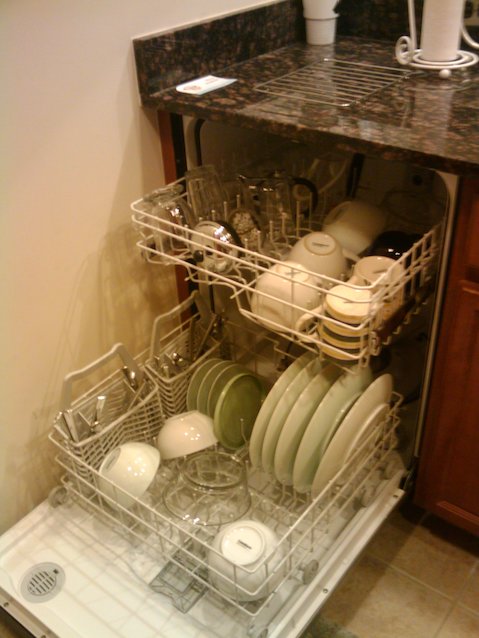
A Half-Empty Dishwasher
While overloading a dishwasher is a bad idea, so too is a running a dishwasher that’s only half-loaded. Not only does this waste water, all that extra space increases the likelihood of breakage since there’s more room for items to bounce around inside once the cleaning cycle begins.

Knives, Graters and Peelers
While placing knives, graters and peelers in the dishwasher will leave them clean and sanitized, it will also leave them dull over time. High-quality knives, in fact, should never be washed in the dishwasher; not only will they lose their sharpness, they can also damage cutlery baskets or even slice your fingers when you unload the dishwasher.
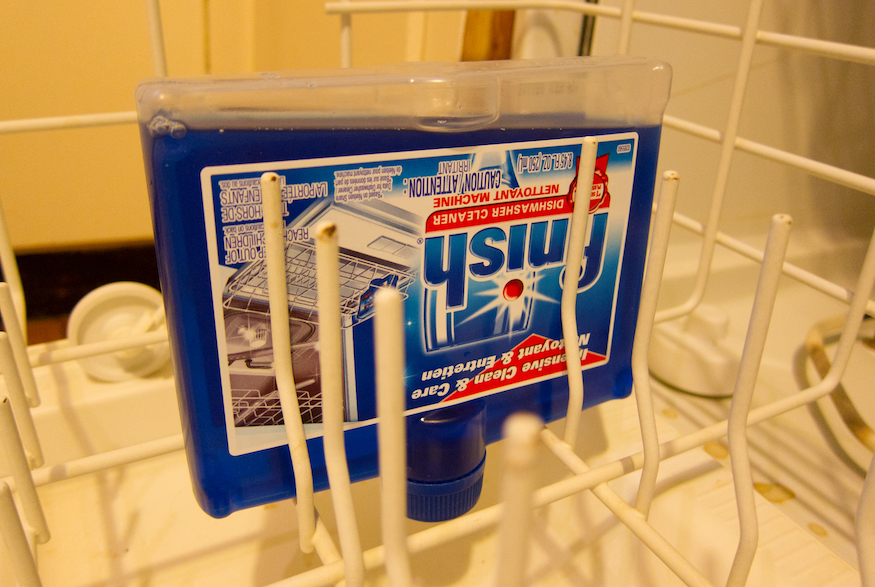
Not Cleaning the Dishwasher
One of the biggest mistakes most people make is forgetting to regularly clean their dishwashers. Over time and multiple uses, a dishwasher will need to be cleaned – a dirty dishwasher won’t do a good job cleaning your dishes. There are plenty of products on the market specially designed to keep dishwashers clean and running at peak efficiency, while running through an empty dishwasher with a solution of vinegar and baking soda will also get the job done.
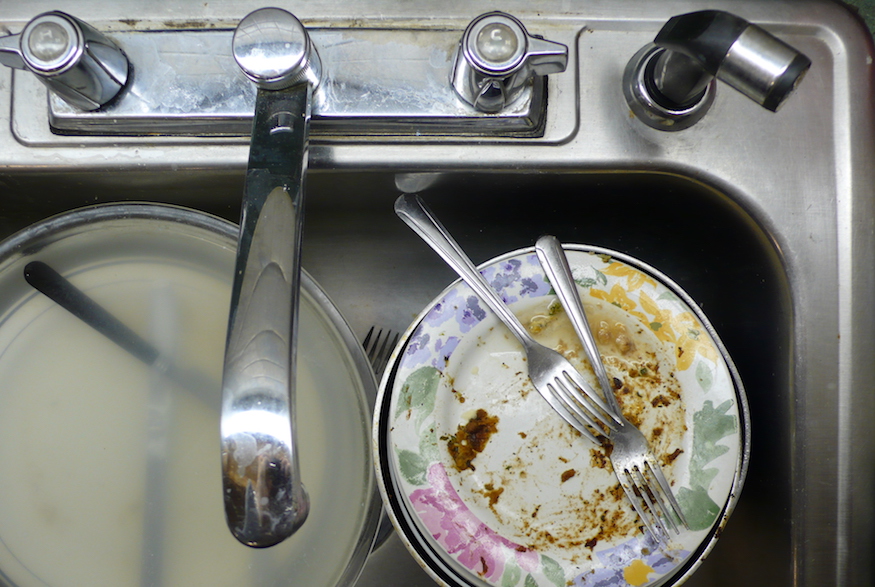
Not Rinsing Dishes
While over-scrubbing before placing items in the dishwasher isn’t recommended, neither is not rinsing dishes altogether. It’s always a good idea to give dishes a rinse, which loosens up food particles that could become caked on and more difficult to clean off. Rinse (and scrub if necessary) to remove large food particles, but leave a little gunk in order to let the dishwasher do its job effectively.
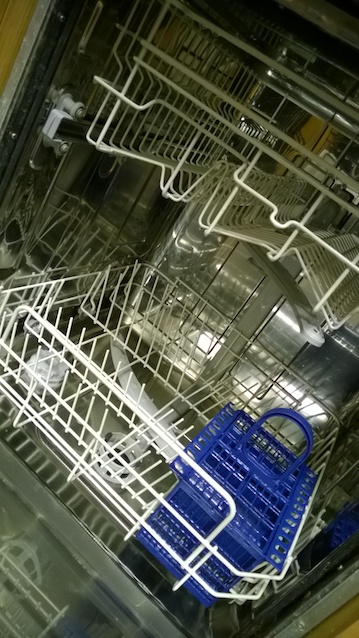
Not Cleaning Out the Food Trap
Underneath the spray arm on the bottom of the dishwasher you’ll find a food trap, which, as its name indicates, traps the excess food debris cleaned from dishes during the washing cycle. But did you know it needs to be regularly cleaned out? If not, the trap will get clogged with all manner of nasty gunk and will prevent your dishwasher from performing at its best.
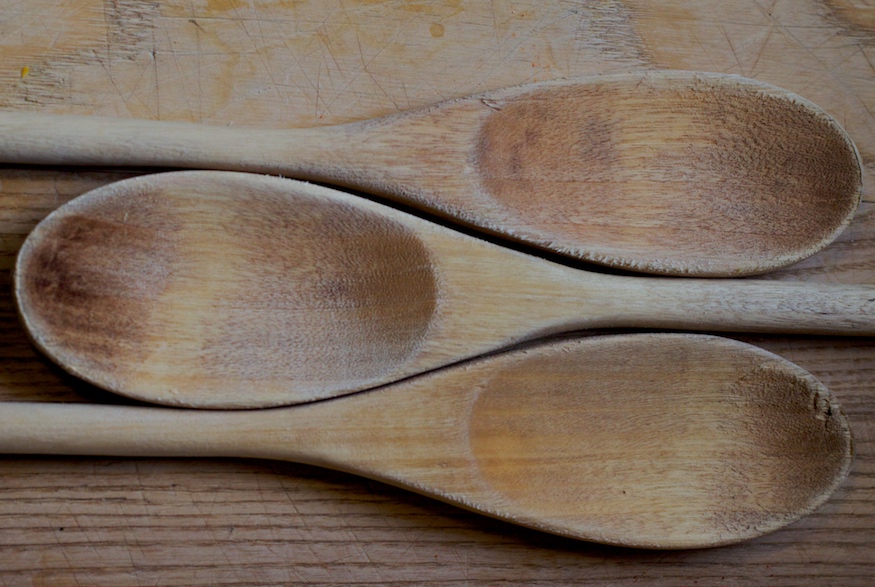
Don’t Put Wood in the Dishwasher
Putting wood items (i.e. wooden spoons, salad tongs, knives with wood handles, etc.) in a dishwasher is a bad idea, as the heat of drying cycle will cause the wood to warp and split. Wood and dishwashers just don’t mix.
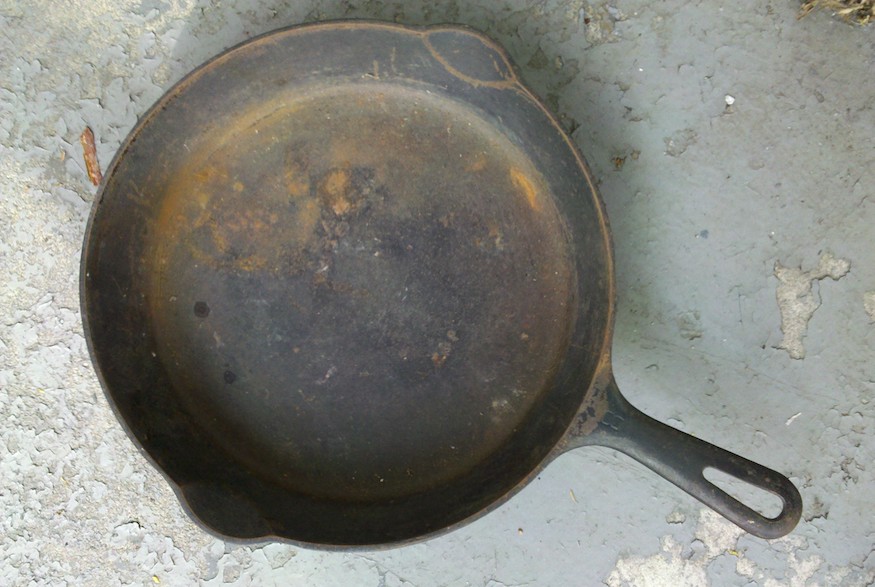
Cast Iron Doesn’t Go in the Dishwasher
Cast iron pots and pans should NEVER go in the dishwasher – that’s a rule. In fact, cast iron should be washed only by hand, and never with dishwashing liquid, which will leave the cast iron dry and rusty (one great way to scrub cast iron is to use a half a lemon and a handful of coarse salt). The most important thing to remember is to always rub the pan with a bit of oil (canola, coconut, avocado or olive oil). This will extend the life of a cast iron pan to the point that you’ll probably never have to buy another one for as long as you live.
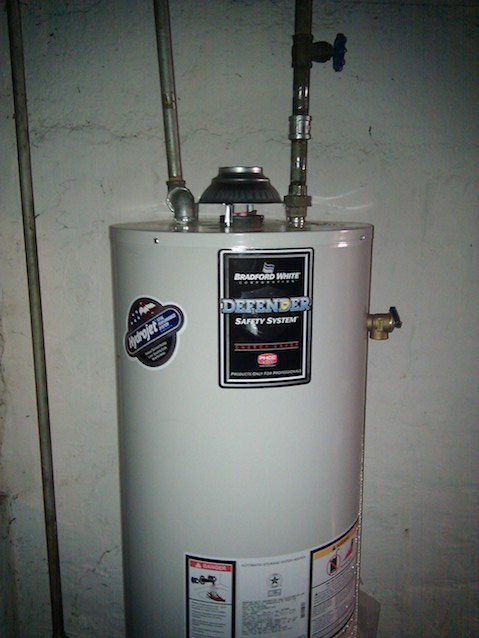
Water May Not Be Hot Enough
Dishes, glasses and cutlery won’t be sanitized unless if the water isn’t hot enough (between 120 and 140 degrees Fahrenheit) – which may not be the case if your water heater is set to max out at a lower temperature. While some people set their water heaters to lower temps in order to save energy, water that is too cool won’t do a hygienic, effective cleaning job, so it’s a good idea to check the settings on your water heater just to be sure.
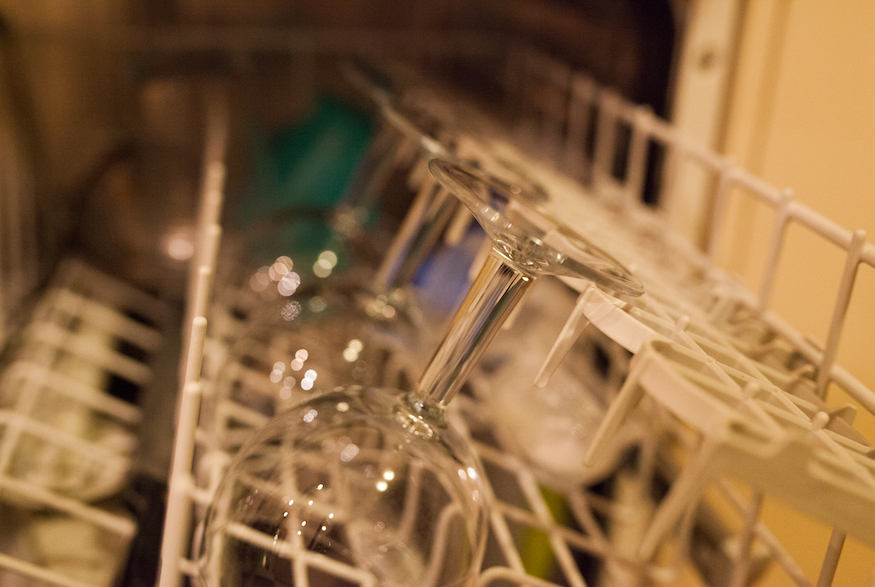
Never Put Glasses and Mugs in the Lower Racks
The top racks of your dishwasher are for glasses, mugs and cups, while the lower racks are for dishes, platters, bowls and the like. Placing glasses on the lower racks and dishes on the upper racks is just wrong, as the dishwasher wasn’t designed to clean that way. Plus, those lower racks aren’t designed to host glasses, increasing the chance they’ll wind up broken at the end of the wash cycle.
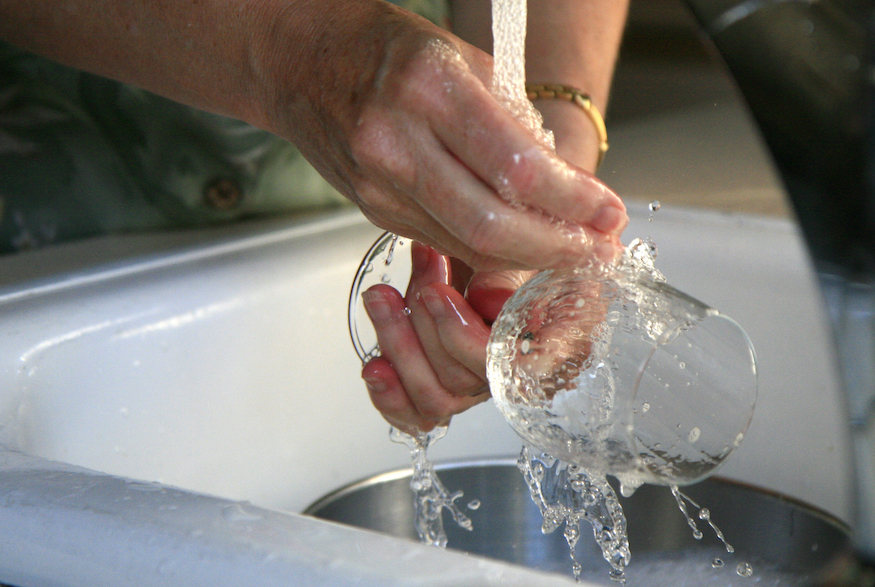
Not Using a Rinse Agent
If you’re not using a rinse agent along with detergent, then you’re not doing it right. While it’s easy to assume a rinse agent is an unnecessary expense that doesn’t really do anything, the truth is that using a dishwasher without a rinse agent will result in glasses with spots from water droplets and a even a filmy coating from dissolved minerals – and who wants that?
HGTV your inbox.
By clicking "SIGN UP” you agree to receive emails from HGTV and accept Corus' Terms of Use and Corus' Privacy Policy.




